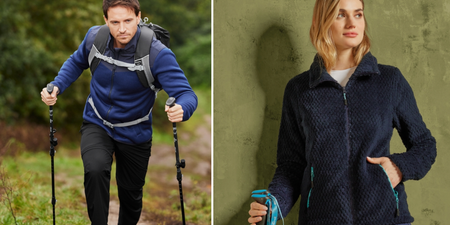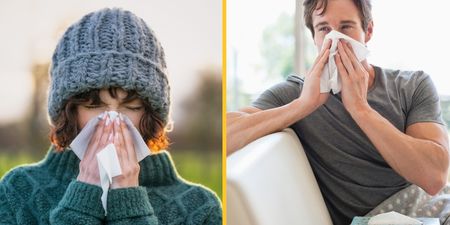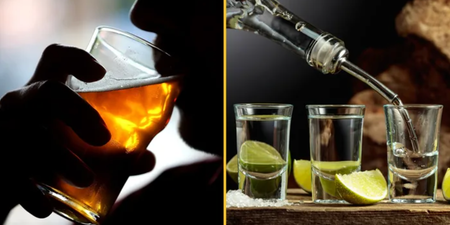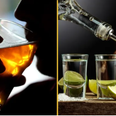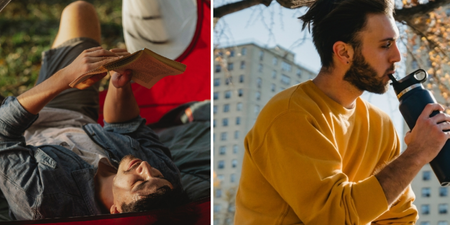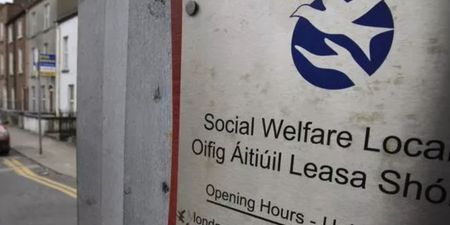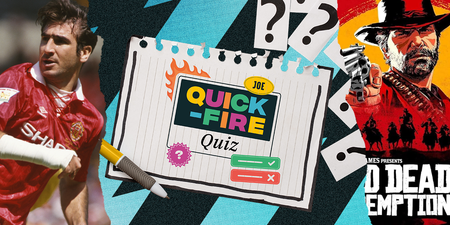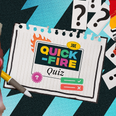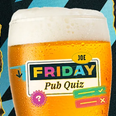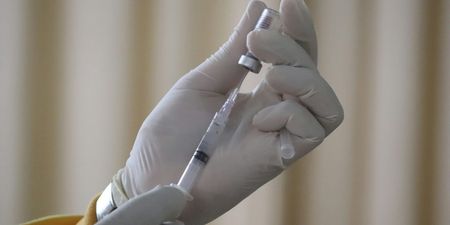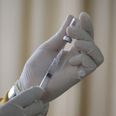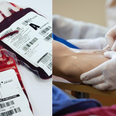A change in approach at music festivals should be the first step towards changing attitudes towards drug use in Ireland.
Pop-up tents, empty cans and broken camping chairs cover trodden down grass as glitter-covered revellers stumble their way through the knotted maze of guy lines and muck. A familiar sight at most music festivals.
Imagine 60,000 people showing up to a field in one day, laden down with two to three full bags, each. Not to mention the camping equipment they’ve brought with them.
It’s not far-fetched to think that not everyone will be searched and some banned items may make it through the net.
Music events are a major part of the Irish summer calendar and every year, despite security being keen to find the next Pablo Escobar, drugs always make it onto the grounds. It just comes with the territory.
The flow of drugs can’t be completely stopped from anywhere. It’s as simple as this; if somebody wants them, they will find a way to get them. Maybe it’s time we took a different approach.

Our closest neighbours to the east in the UK have taken measures in an attempt to ensure incidents of drug overdoses don’t happen again after two drug-related deaths at the Mutiny festival in 2018.
It’s not a rare experience to be enjoying the music when someone nearby collapses onto the ground and is rushed off to the medical tent. It’s a scary sight to see a person unresponsive.
Services like The Loop in the UK aim to change that scene. They have introduced drug-testing facilities at festivals where users can have their drugs tested anonymously for purity, contamination and strength.
Despite the drugs still being illegal and despite there being measures in place to prevent the public from bringing them on site, police at certain festivals in the UK have allowed the drug testing facilities to operate and do not interfere with those using the services.
Last summer, more than 8,000 people came forward to use services that were available at seven festivals across the UK. After receiving the results of the tests, as many as one in five people volunteered their drugs to be destroyed by police.
It appears once people know what’s in the drugs they are taking, they are more cautious. Anti-malaria medication, sugar and a compound called pentylone, which can cause insomnia, are just some of the substances found by the tests last year.
On the continent, the Netherlands have been testing illicit substances for over two decades. The Drug Information and Monitoring system was set up in 1992 and still operates, with 23 permanent sites across the country.
The Dutch don’t stand alone on the mainland in their fight against unsafe drug use. Austria, Switzerland, Spain and Portugal have all followed suit.
Some may think that the introduction of testing may increase the likelihood of usage, but it has not. In fact, it has been reported that drug use in these countries has barely fluctuated and the drugs are generally closer to the composition of what they’re being sold as.
In Ireland, drug use among younger people has grown in recent years with 9% of 15-34 year olds reporting illicit drug use in the previous month according to a study by Drugnet Ireland in 2015. This is a 4% increase from the previous study in 2010.
These figures go to show how drug use is more prevalent than it previously was. Prohibition isn’t diminishing the influx of illicit substances and is not stopping people from using them.
Ireland has the second highest use of ecstasy pills per day in the world after Australia, with the average Irish user taking 1.5 grams per day of use, where the average is one gram. We are the highest users of MDMA powder with .5 grams compared to the .3 grams average.
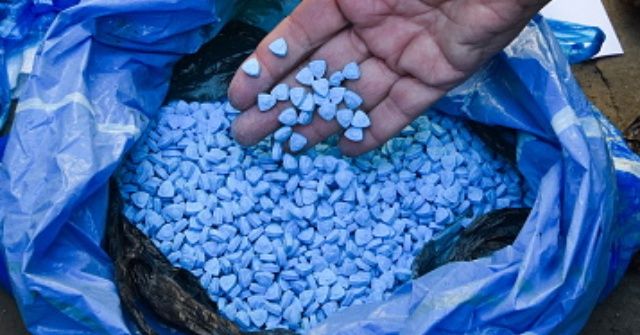
In contrast to this, alcohol consumption in Ireland has actually fallen from 14 litres of pure alcohol per person per year in 2001 to 11.3 litres in 2016.
The National Drugs and Alcohol Strategy was launched in 2017 as a way of reducing the harm to society caused by intoxicants. Instead of treating substance abuse as a criminal justice matter, the strategy aims for it to be seen more as a health matter.
There were over 11,000 drugs seizures in Irish prisons between 2010-2017. This clearly shows that keeping prisons drug-free isn’t working. Just last year there was a 42% increase in drug seizures compared to the year previous.
Dr. Paul O’Mahony, Trinity College lecturer and author of a number of books on the Irish criminal justice system said that “drugs are never more attractive than in prisons” in a report on the key issues for drugs policy in Irish prisons.
The Ana Liffey Drug Project, Ireland’s first harm reduction organisation, have been operating since 1982. They offer festival-goers harm reduction advice and information at different events throughout the year.
Last year, for example, in less than 24 hours, almost 140 people sought help from the Ana Liffey Welfare tent at Electric Picnic for drug and alcohol-related problems.
Speaking to JOE, Ana Liffey CEO, Tony Duffin, said: “We all want our loved ones to come home safely… how many of us have said, ‘if you can’t be good, be careful’ – that’s the earliest piece of harm reduction advice we all have heard.”
“I think ideally Ireland should provide front of house drug checking, similar to the model the Loop provides in the UK. Back-of-house drug checking would provide professionals with more information, but will miss the opportunity to offer one-to-one harm reduction advice.”
Front of house drug checking refers to drug users being able to see directly if the substance they bought actually was what it was sold as, a sort of as-you-wait service. Back-of-house is drug checking for laboratory use and not for general public use.
Attitudes towards drug use in Ireland are changing. Earlier this year, the HSE teamed up with the Union of Students Ireland to launch a new harm reduction campaign called #SaferStudentNights.
The campaign is aimed at students, encouraging them not to take drugs, but if they do, to know what they are taking and how to take them in a safer way.
Despite the shift in attitudes, however, not all festival organisers are keen on having testing facilities at their events.
Speaking to JOE, Sea Sessions organiser, Daniel Browne, said: “We have never been approached by any company offering this drug testing service and if we were, it’s not something we would engage with.
“We work closely with the NW (North West) drugs task force, undercover and uniform Gardaí and medical professionals to provide a safe environment for our fans.”
We would like to see drug use not exist at all and in a perfect world we wouldn’t have to deal with problems of substance misuse, but the sad reality is we don’t live in a perfect world, we live in the real world.
JOE contacted An Garda Síochána for comment on various measures of harm reduction, but were met with a response that it was a matter for the Oireachtas or the Department of Justice and Equality.
Perhaps we should look at things from a different perspective and change the way we deal with drug use in Ireland. Attitudes are changing, but not fast enough.
On 18 June 2019, the HSE launched a new harm reduction campaign aimed at festival goers. At Body & Soul this weekend, harm reduction advice will be offered to attendees.
If you're at @BodyandSoulIrl this weekend, come and chat to the @drugsdotie team until 6 each day. They're near the Living Lab area!
Find out all you need to know about staying safe at festivals here: https://t.co/nybkihDwST #SafeUpYourSesh pic.twitter.com/U9kNa7qnBo
— HSE Ireland (@HSELive) June 21, 2019
The HSE says: “It is always safer not to use drugs at all. However, we need to be realistic and acknowledge that festivals are risk-taking settings where people may try drugs for the first time or try new types of drugs. This harm-reduction campaign is to keep people as safe as possible.”
The campaign is a step in the right direction, but it still seems like baby steps in marathon while other runners from other countries pass us by.
Ireland is a progressive state. We’ve voted to legalise abortion; shorten divorce separation times and we were the first country in the world to legalise gay marriage.
Yet, when it comes to drug policy, the front runners are in the distance.
There’s no reason for us to fall further behind.
For more information on drugs and alcohol information and support in Ireland, visit drugs.ie.
LISTEN: You Must Be Jokin’ with Aideen McQueen – Faith healers, Coolock craic and Gigging as Gaeilge












